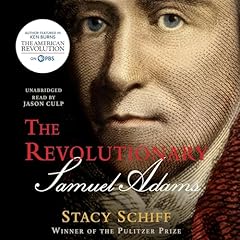
The Return of George Washington
1783-1789
No se pudo agregar al carrito
Add to Cart failed.
Error al Agregar a Lista de Deseos.
Error al eliminar de la lista de deseos.
Error al añadir a tu biblioteca
Error al seguir el podcast
Error al dejar de seguir el podcast
Obtén 3 meses por US$0.99 al mes
 Exclusivo para miembros Prime: ¿Nuevo en Audible? Obtén 2 audiolibros gratis con tu prueba.
Exclusivo para miembros Prime: ¿Nuevo en Audible? Obtén 2 audiolibros gratis con tu prueba.
Compra ahora por $24.29
-
Narrado por:
-
Mark Bramhall
-
De:
-
Edward J. Larson
NEW YORK TIMES BESTSELLER
""An elegantly written account of leadership at the most pivotal moment in American history"" (Philadelphia Inquirer): Pulitzer Prize-winning historian Edward J. Larson reveals how George Washington saved the United States by coming out of retirement to lead the Constitutional Convention and serve as our first president.
After leading the Continental Army to victory in the Revolutionary War, George Washington shocked the world: he retired. In December 1783, General Washington, the most powerful man in the country, stepped down as Commander in Chief and returned to private life at Mount Vernon. Yet as Washington contentedly grew his estate, the fledgling American experiment floundered. Under the Articles of Confederation, the weak central government was unable to raise revenue to pay its debts or reach a consensus on national policy. The states bickered and grew apart. When a Constitutional Convention was established to address these problems, its chances of success were slim. Jefferson, Madison, and the other Founding Fathers realized that only one man could unite the fractious states: George Washington. Reluctant, but duty-bound, Washington rode to Philadelphia in the summer of 1787 to preside over the Convention.
Although Washington is often overlooked in most accounts of the period, this masterful new history from Pulitzer Prize-winner Edward J. Larson brilliantly uncovers Washington’s vital role in shaping the Convention—and shows how it was only with Washington’s support and his willingness to serve as President that the states were brought together and ratified the Constitution, thereby saving the country.
Los oyentes también disfrutaron:




















Great book
Se ha producido un error. Vuelve a intentarlo dentro de unos minutos.
George Washinton is at the center of this book and it is clear that he was the indispensable man of this period. It was only his presence and the knowledge that he would be the first President and the one to establish the traditions of office that convinced many of those present that the change to Federalism was worth taking the chance. There is also the well known story of the need for a Bill of Rights, argued against by Madison and others as being unnecessary, and the story of how it was passed after ratification, this time with the help of Madison at the urging of Jefferson.
The one thing I found odd about this book was the author's contention that George Washington was generally viewed as not being involved in the effort to convene the Constitutional Convention while he was, in fact, very heavily involved with both the effort to convene the convention and the actions of the convention itself. I found this odd because every biography of Washington that I have ever read made a point of his efforts to change the US from the lose confederation it was to a more centralized form of government. No book on Washington I have ever read said that he was only an uninvolved planter in the years when the confederation was failing due to its inability to function as a normal central government, yet the author says that this was the general view.
Still, Edward Larson has written a book well worth reading, even by those who are familiar with the years after the US war of independence and before Washington's swearing in as its first President. The narration is very good and the story worth re-telling.
US Constitutional Convention
Se ha producido un error. Vuelve a intentarlo dentro de unos minutos.
For Serious History Buffs
Se ha producido un error. Vuelve a intentarlo dentro de unos minutos.
love it<br />
Se ha producido un error. Vuelve a intentarlo dentro de unos minutos.
A most impressive man
Se ha producido un error. Vuelve a intentarlo dentro de unos minutos.


